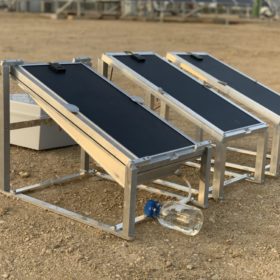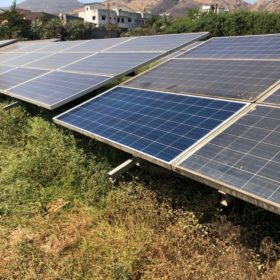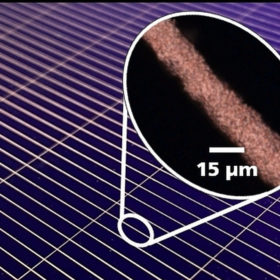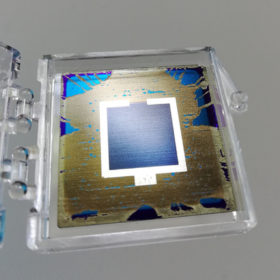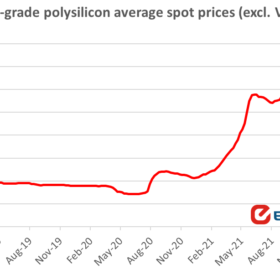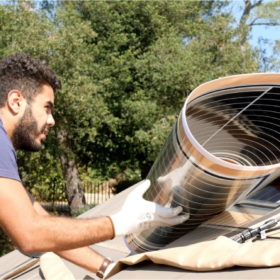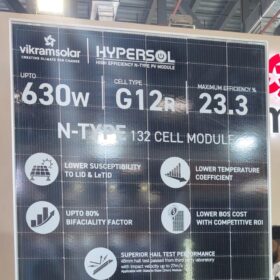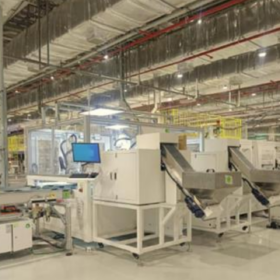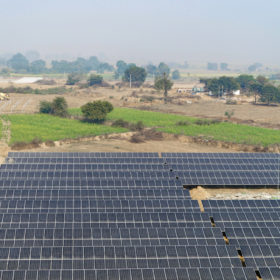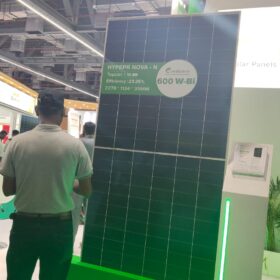Fully PV-driven system to produce water, electricity, crops
Researchers in Saudi Arabia have fabricated an integrated fully PV-powered system to extract fresh water from the atmosphere. The system uses excess heat from the solar modules to evaporate and condense water that can then be used to grow crops. Part of the water is also used to cool down the solar modules through an active cooling technique.
Swiss manufacturer unveils 500W solar module with 23.2% efficiency
Megasol said the solar module relies on new back-contact technology that is able to reduce internal resistance, ohmic losses and cell spacing.
The log read: The changing geopolitics of green hydrogen
With 90% of world economies committed to net zero targets, the disruptive nature of the energy transition is becoming clear. Climate targets require us to triple renewable energy capacity by 2030, phase out coal by 2040, end fossil fuel subsidies, and ensure support for a just transition. While hydrogen is sure to be a key technology in this energy transition, the exact role it will play is not yet clear, reports Felicia Jackson.
Solar module anti-soiling coating for retrofit application
Dutch company Rads Global Business has developed an anti-soiling coating for solar PV modules that are at least two years old. The new product is claimed to increase power yield by up to 7% and to have a payback time of 2.5 to four years depending on the dust level of the site.
Bifacial TOPCon solar cell with 23.84% efficiency, 90% lower silver consumption
Developed by Germany’s Fraunhofer ISE, the cell is manufactured with metallization based on a plating process. The device was built with galvanic nickel/copper/silver contacts instead of common silver contacts.
First attempt to build tandem perovskite-PERC/POLO solar cells achieves 21.3% efficiency
The tandem cell was fabricated by German scientists through a process flow that is compatible with industrial, mainstream PERC technologies. According to its creators, the device has the potential to exceed efficiencies of over 29% with adjustments in the perovskite thickness and bandgap.
The long read: Standards to unlock V2G
Mass adoption of electric vehicles presents opportunities for significant battery deployment to support our grid and power our homes. Developing and adopting standards for vehicle-to-grid bidirectional technology is needed to accelerate the path to these opportunities, reports pv magazine USA’s Tim Sylvia.
Polysilicon price fluctuations expected to continue until late 2023
Two industry experts have provided analyses of the current polysilicon price scenario in a chat with pv magazine and both agreed that polysilicon demand is still growing faster than supply. The price may decrease starting from the second quarter and reach more reasonable levels by the end of the year.
Rollable CIGS solar modules from France
French start-up Solar Cloth is planning to scale up capacity at its module production facility near Cannes. The factory will produce 17.6%-efficient flexible solar modules integrated into textile supports.
LG exits solar module business
The Korean manufacturer said its solar module business will be closed by the end of June. It blamed uncertainties in the global solar industry for its decision.
